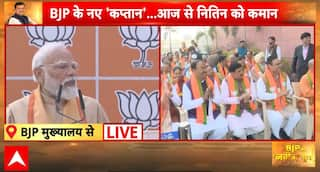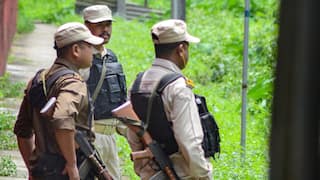Explained: Why Is Peaceful Sweden Seeing Violent Riots?
Sweden Riots: Tensions were simmering in Sweden following a series of rallies organised by the Danish-Swedish politician Rasmus Paludan, the leader of right-wing Stram Kurs party.

New Delhi: 'Peaceful' Sweden, a nation of 10 million, has been on the boil following violent clashes in several cities between police and people protesting against a far-right outfit's plans to burn copies of the Quran, the Islamic sacred book.
In several cities, rioters damaged vehicles and resorted to arson and vandalism, BBC reported. More than 40 people have been arrested ever since riots broke out on April 15.
Sweden's national police chief, Anders Thornberg, said he had never seen such violent riots in the country, ranked 15th in the 2021 Global Peace Index.
Why Did Riots Break Out In Sweden?
Tensions were simmering in Sweden following a series of rallies organised by the Danish-Swedish politician Rasmus Paludan, the leader of right-wing Stram Kurs party. He claimed to have burnt a copy of Quran and wanted to do so again, triggering unrest.
For the Muslim community, any intentional damage or show of disrespect towards its holy book is considered deeply offensive.
Who Is Rasmus Paludan? Have Such Riots Happened Before?
Rasmus Paludan is a Danish lawyer who also holds Swedish citizenship. In 2017, he set up the Stram Kurs party, which runs on an anti-immigration and anti-Islam agenda. "Stram Kurs is the most patriotic political party in Denmark," the website of the party says.
In the last Danish election in 2019, Paludan's Stram Kurs party received only 1.8 % of the vote and failed to win a seat. In 2020, he was jailed in Denmark for a month for a spate of offences, including racism.
In 2020, similar protests against plans by Stram Kurs party to burn the Quran had turned violent in Sweden. Then, protesters had set cars on fire and shops were vandalised in clashes in Malmo.
How Did Violence Spread In Sweden? Which Cities Were Affected?
Since Friday, clashes have been reported in Stockholm, Rinkeby, Orebro, Linkoping and Norrkoping. Interestingly, these locations are where Stram Kurs either planned or had demonstrations.
The trail of violence started in Norrkoping, which is about 160 km south-west of Stockholm, and nearby Linkoping on Friday. Sporadic clashes between protesters and police also took place in the Stockholm suburb of Rinkeby and the western city of Orebro.
Videos and photos from the violence sites showed burning police cars and protesters hurling stones and other objects at police officers in riot gear.
In Landskrona, over 100 people threw stones, set cars, tires and dustbins on fire, and put up a barrier fence that obstructed traffic, AP reported quoting Swedish police.
On Saturday, protests broke out at a park in Malmo where Rasmus Paludan addressed a few dozen people. A small number of counter-protesters threw stones at demonstrators and police was forced to use pepper spray to disperse them.
Paludan himself was reported to have been hit by a stone on his leg, Swedish media said.
The latest round of violence broke out on Sunday night in Malmo, Sweden's third-largest city. A mob constituting mainly young people set fire to car tires, debris and garbage cans in the Rosengard district. Protesters threw stones and police responded by firing tear gas into the crowd. A school and several cars were set on fire.
Sweden's National Police Commander Jonas Hysing said 26 police and 14 individuals were injured in the riots and 20 police vehicles destroyed.
Police said around 200 people were involved in the violence while suspecting them to be organised by networks of criminal gangs, BBC reported.
How Has The International Community Reacted?
Condemning the violence, Saudi Arabia has called it a "deliberate abuse of the holy Quran by some extremists in Sweden, and provocation and incitement against Muslims". Iran and Iraq have summoned the Swedish ambassadors to lodge protests, BBC reported.
Related Video
Breaking News: BJP’s New National President Pays Tribute to Party Workers and Leadership







































